If you’re a fish owner, it’s only natural to want the best for your aquatic friends. But sometimes, even with all of our good intentions and careful planning, things don’t always go as intended. But What to do if fish are too big for a tank?
In this article, I’m going to cover everything you need to know about what happens when fish outgrow their tanks and how you can provide them with the proper environment they deserve.
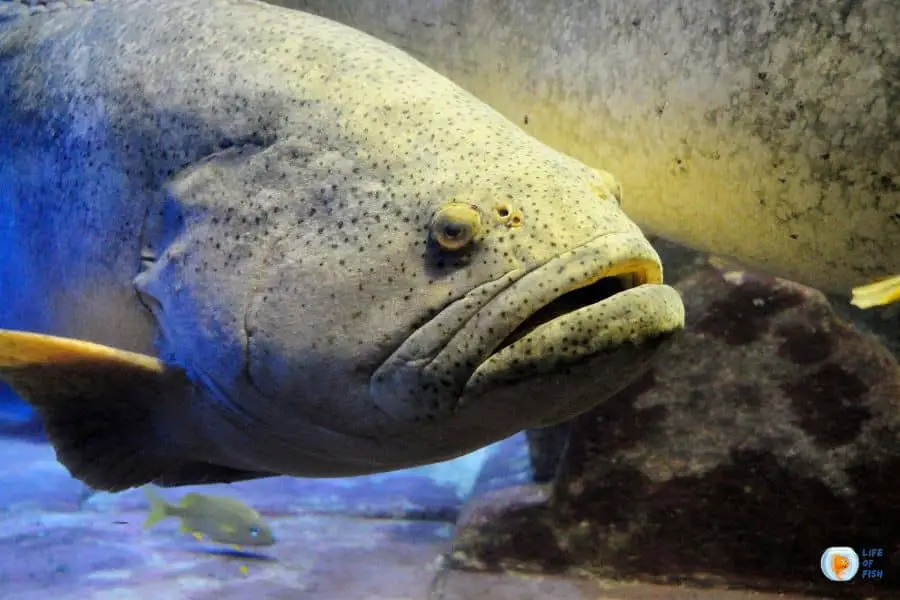
So whether you’ve got guppies or goldfish swimming around at home, read on for my expert advice on What to do if fish are too big for a tank !
What to do if fish are too big for a tank
Jump To
I faced this very problem recently when my fish outgrew their tank. It’s important to make sure you have the right size aquarium from the beginning, but if your fish has already grown too big for its current home then you have some decisions to make.
It can be stressful when our pets outgrow their enclosures, but finding a new home isn’t impossible. If you take the time to research what type of aquarium setup works best for your particular species of fish, provide them with ample food and clean water, and give them plenty of room to move around, they’ll thrive in no time!
Upgrade To A Bigger Fish Tank
When your fish outgrow their aquarium, it’s time to upgrade to a bigger tank. This can be daunting at first because of the cost or the hassle of moving everything around but there are many benefits that will make it worthwhile. Not only do bigger tanks provide more space for your beloved fishy friends to swim and explore, but they also allow you to add some new tank mates without overcrowding the tank.
When selecting a new tank, think about what kind of environment is best suited for your existing fish species as well as any potential additions. It’s important to have enough room for all of them and still maintain good water quality with adequate filtration and circulation. You may need additional equipment such as heaters, lights, or airstones depending on the type of aquatic life you plan on having in the tank so factor these costs into your budget when shopping around.
While it might take some getting used to, having a larger setup provides plenty of advantages like being able to witness natural behaviors among different species, adding vibrant colors and textures through live plants, and just generally creating an enjoyable atmosphere where everyone has enough space to thrive and grow. So why not give it a try?
Other Options
When fish outgrow their aquarium, it can be a difficult situation to manage. It’s important to consider all of the options before making any decisions. Some people may opt for an upgrade in size tank; however, there are other solutions that need to be considered as well.
One option is to redistribute your fish among multiple tanks. This way you won’t have one overcrowded tank and instead maintain good water quality across several smaller tanks. Just make sure that each tank will provide enough space and filtration so that your fish don’t become stressed or unhealthy due to overcrowding.
You could also look into re-homing some of your fish if they’re starting to get too big for their current home. Whether it’s giving them away or donating them to a local aquarium store, this can help ensure they continue living healthy lives in larger fish tanks with more room for growth.
No matter what solution you choose, taking care of overgrown fish requires special attention and diligence on your part as an owner. Make sure you research every option thoroughly before committing to anything!
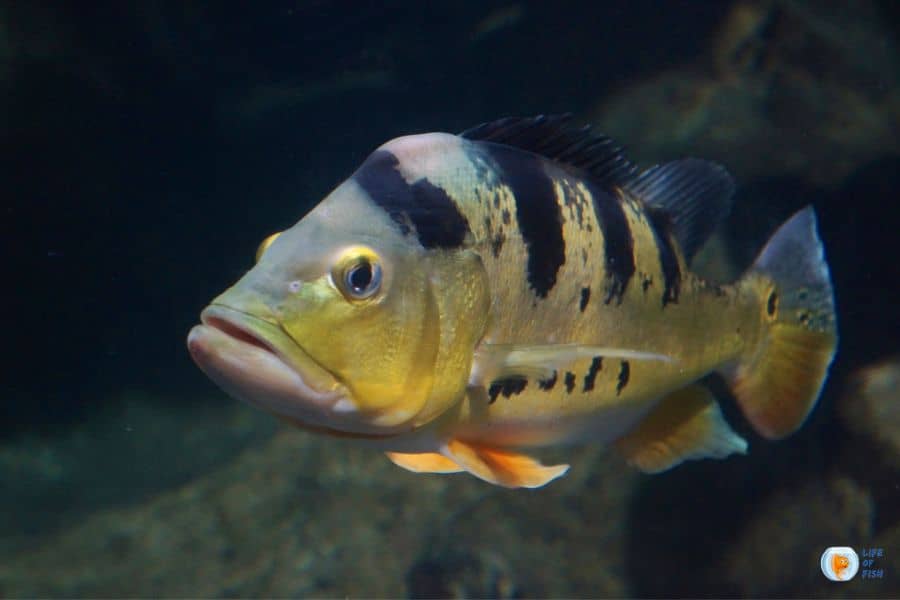
How Big Should A Fish Get?
Choosing the right size fish tank for your fish is one of the most important decisions you can make when it comes to caring for them. It’s especially crucial with betta fish, which need plenty of room to swim and explore their habitat. But how big should a tank be? Well, that depends on what type of water fish you have.
Generally, larger tanks are better than smaller ones. They allow more space for the aquarium’s inhabitants while also making maintenance easier. If you’re keeping just one betta fish in an aquarium, then a gallon tank is usually considered sufficient. However, if you plan to keep several together or any other types of fish, such as corydoras or tetras, then you’ll need something bigger – at least five gallons per additional fish would be ideal.
It’s always best to err on the side of caution and opt for a slightly bigger tank than necessary so that your fish have enough space to grow and live comfortably over time. That way, even if they do outgrow their home eventually, there will still be plenty of room for them until it’s time to upgrade!
How Do We Know What Is The ‘Right’ Size For Any Given Species?
Figuring out the ‘right’ tank size for any given species of fish can be tricky. It’s important to consider factors like water chemistry, temperature, and salinity when determining how big a fish should get in an aquarium. Additionally, you need to take into account the amount of space available in your tank as well as the types and sizes of other inhabitants that may already be living there.
Thankfully, there are a few guidelines we can use when selecting our fish. First off, we need to make sure that all the necessary equipment such as air pumps, filters, and heaters are properly sized for our tanks so that they don’t become overcrowded with larger species down the line. Secondly, it’s essential to research what type of environment each specific breed prefers and choose accordingly. Some fish require more swimming room than others while some prefer smaller tanks or even bowls!
Finally, if it appears that your current setup won’t accommodate a certain species once they reach full size then it might be best to look elsewhere for something better suited to their needs. This way you ensure both you and your beloved aquatic friends remain happy and healthy throughout their lives!
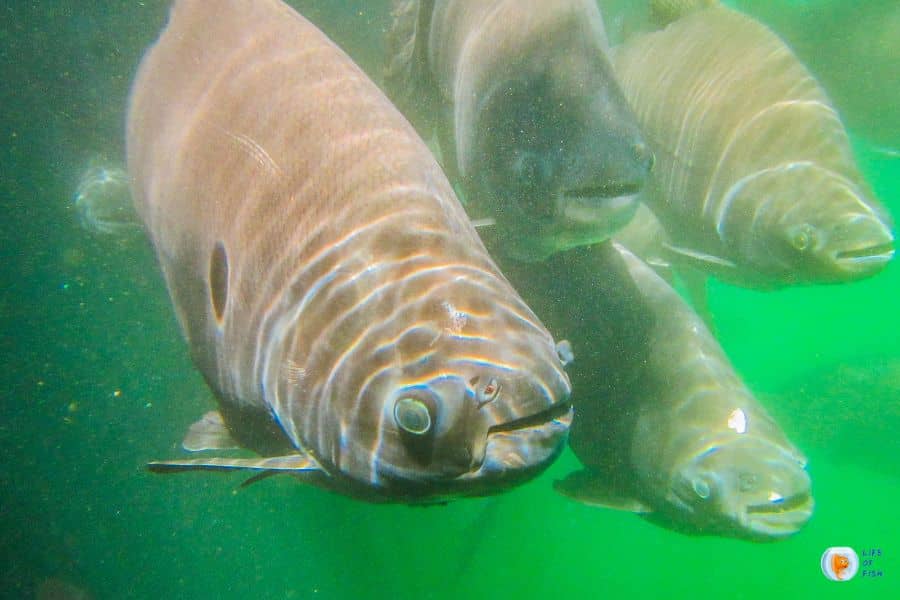
Factors Affecting The Size Of Your Fish
When choosing a fish for your aquarium, size is an important factor to consider. The right size tank will ensure that the fish have enough room to move around and live comfortably without overcrowding them. In this article, we’ll discuss some of the factors that affect how large your fish can get in an aquarium.
Obviously, different species of fish grow at different rates and sizes, so it’s important to research what type of fish you want before making any decisions. Some species are more active than others and need larger tanks, while other slower-growing types may be able to thrive in smaller spaces. Additionally, water temperature also affects the growth rate; warmer temperatures tend to accelerate growth whereas cooler waters slow down development and keep the fish from reaching its full potential size.
It’s also essential to pay attention to diet when keeping fish in an aquarium as nutrition has a big impact on their health and growth rate. Fish should receive high-quality food that provides all the necessary nutrients they need for proper development. By providing adequate amounts of protein and vitamins, you’ll help optimize their growth potential and make sure they stay healthy during their lifetime in captivity.
Overall, when selecting a species for your aquarium it’s best to do your research thoroughly first so you know exactly what size tank each one needs as well as what kind of environment they prefer most. This way you can make sure your fish stay happy and comfortable in their home!
Quality Of Diet
When it comes to fish, the quality of their diet is an important factor for them to stay healthy and grow at a reasonable rate. A balanced diet full of vitamins and minerals can help keep your fish’s size within the limits of the aquarium.
There are several things that you should include in your fish’s diet:
- Live foods like worms, small crustaceans and insects;
- Freeze-dried food;
- Prepared frozen meals;
- Nutrient-rich flakes or pellets.
Providing all these different types of food will ensure that your fish get all the necessary nutrients they need, allowing them to remain healthy without growing too large for their tank. This also means fewer water changes due to fewer uneaten pieces polluting the environment. Of course, if your fish still outgrow its tank despite proper nutrition, then you may need to consider upgrading the size of the aquarium – but this won’t be necessary if you feed them correctly!
Availability Of Nutrients
When it comes to keeping fish healthy, the availability of nutrients is essential. Without them, they can become sick or even die. It’s important that tanks are well-stocked with nutrient-rich food sources like algae and vegetables so that your fish have everything they need for optimal health. If you find that your tank isn’t providing enough nutrients, supplementing your diet with store-bought foods is a great way to make sure your fish get what they need.
Another factor to consider when trying to ensure your fish stay healthy is water quality. The pH levels in aquariums must be kept balanced; otherwise, it can cause illnesses or even death in our finned friends! Regularly testing the water parameters and performing partial water changes can help keep things running smoothly and make sure there are no harmful bacteria present in the tank.
Lastly, if you find yourself dealing with an overpopulated aquarium due to too many fish outgrowing its size, rehoming some of them may be necessary. This option might seem difficult at first but will ultimately provide more space for those who remain in the tank as well as give new homes to other lucky ones!
TIP: Always research different species before adding them to an established aquascape; this will allow you to determine which ones are compatible and how many should fit comfortably in the space provided.
Cleanliness Of Aquarium
I’m sure we’ve all experienced the dilemma of a fish outgrowing its aquarium. It’s important to consider not only their availability of nutrients but also the cleanliness of the aquarium itself.
The first step is to make sure you’re regularly changing part of your tank water and cleaning it with a gravel cleaner or siphon vacuum. This helps keep toxins from building up in your tank, which can be harmful to your fish and other aquatic life. A dirty aquarium will quickly become an unhealthy environment for any type of creature living within it.
It’s also essential that you maintain the correct chemical balance in your tank at all times: check pH levels, nitrates, ammonia, etc., as these parameters are crucial for keeping the aquarium healthy – especially when dealing with larger fish. You may need to invest in additional equipment such as filters or pumps to help achieve this balance and ensure optimal health conditions for your pets.
Overall, if you want to keep large fish then you must understand that maintaining a good level of cleanliness and ensuring they have access to adequate nutrition is absolutely essential; otherwise, you risk compromising their well-being and putting them in danger – both short-term and long term.
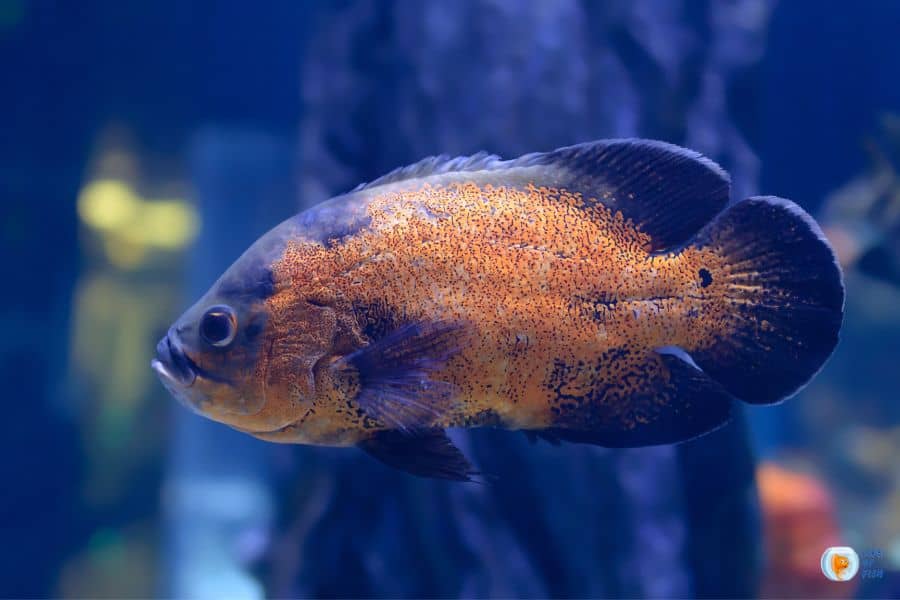
What Does A Fish Need In Order To Grow To Its Natural Genetic Size?
When considering what a fish needs in order to grow to its natural genetic size, it’s important to think about the environment they’re living in. This includes making sure the aquarium is big enough for them, providing them with a healthy diet, and ensuring that the water quality is clean.
The first step should be to research what type of space your particular species requires. Some fish need more room than others, so you’ll want to make sure your tank can accommodate their growth over time. Secondly, provide them with a balanced diet that meets all their nutritional needs.
This will help ensure optimal health and promote proper development. Lastly, keep an eye on water quality by regularly testing parameters such as pH levels and ammonia concentrations. Doing so will help maintain good conditions for your fish and prevent any issues from arising down the line.
It’s essential that you take these steps when caring for your pet fish if you don’t want them to outgrow their home too quickly! Proper maintenance of the aquarium should always be a priority – not only does it create better living conditions for your fish but it’ll also give you peace of mind knowing that your aquatic friend has everything they need to stay healthy and happy.
Impact Of Hosting Fish In A Small Tank
When fish outgrow their tank, it can have serious consequences. Not only is the aquarium too small for them to live comfortably, but they also may suffer health complications due to overcrowding and insufficient resources. It’s important to understand the impact of hosting a fish in a tank that isn’t large enough for its natural growth.
Firstly, if your fish is not given enough room to swim around, it will become stressed and unhealthy. This could lead to physical signs such as lethargy or discoloration of the fins. Additionally, an overcrowded tank would mean there are fewer resources available per fish; this includes food, oxygen levels, and space for waste. All these factors combined create a difficult environment for the little swimmers living inside!
Finally, it’s essential you check on your pet regularly so that any warning signs of overcrowding can be identified early on. When an aquarium becomes too cramped with overgrown fish, some might need to be rehomed into larger tanks where they’ll thrive instead of suffer. With careful monitoring, proper maintenance, and adequate supplies – both water and space-wise – we can keep our finned friends happy and healthy!
Reduced Life Span
When fish outgrow their aquarium, it can have a serious impact on their life span. It’s important to recognize the signs of an overcrowded tank and take action quickly before something drastic has to be done. Here are 4 key things to consider when determining if your aquarium is too small:
- Is there enough space for all of the fish without them bumping into each other?
- Do they have adequate places to hide away from the light and any predators in the tank?
- Are you able to provide ample food for everybody in the tank?
- Does everyone appear healthy and happy with no signs of distress or agitation?
If any of these questions cannot be answered positively, then it may be time to act. The longer that fish remain in an overstocked environment, the more likely they will suffer from physical stress which could lead to disease or even death. If this happens, not only does it reduce the life span of your beloved pet, but also causes unnecessary suffering along the way.
Therefore, as soon as you realize that a larger aquarium is necessary, make sure you move fast so your fish can enjoy a long and healthy life. Taking steps such as upgrading tanks or rehoming some of your pets might feel difficult at first, but ultimately provides better living conditions for everybody involved!
Fighting For Space
I’m in a tough spot. My aquarium is too small for the fish I have, and now they’re fighting for space. It’s even worse when one of them has outgrown their tank – now my other fish don’t stand a chance!
It’s not just uncomfortable either – it can be dangerous if the tank isn’t big enough to accommodate everyone. With limited room, the water quality will start to deteriorate, making life difficult for all the inhabitants. Plus, stressed fish are more susceptible to disease which could lead to deadly consequences.
So what can I do? Here are 5 tips that might help:
- Get a bigger tank – This is an obvious solution but it may not always be feasible depending on your budget or space limitations.
- Rehome some of the larger fish – If you feel comfortable doing so, find another home with a larger tank where these fish can thrive long-term.
- Utilize vertical swimming space – Aquariums come in all shapes and sizes; some tanks feature tall walls that allow fish plenty of height to swim around in instead of competing for surface area.
- Introduce smaller species – Smaller species tend to require less space than larger ones, allowing you more options when stocking your aquarium.
- Add decorations & plants – By adding rocks and live plants into your aquarium setup, you’ll create extra hiding places as well as give your fish additional oxygenation sources and areas to explore without having to compete over territory.
These solutions can help alleviate stress caused by overcrowding while also promoting healthy living conditions in the aquarium environment. A good balance between size, number of occupants, and proper filtration should ensure happy and healthy inhabitants that won’t needlessly fight each other due to lack of space.
Poor Water Quality
I’m sure many aquarists have faced this problem: their fish outgrew their aquarium! It’s a difficult situation to be in because you don’t want your beloved fish to suffer due to overcrowding. But what can you do?
One of the biggest issues that come with overstocking an aquarium is poor water quality. When there are too many fish in one tank, it means more waste and less oxygen for them. Without good filtration, the tank will quickly become polluted, which could make the fish sick or even kill them. To prevent this from happening, regular water changes should be done every week and a bigger filter should be installed if possible. Additionally, if any additional fish are added to the tank, they must also be properly acclimated before being released into the tank.
The other option is to rehome some of the larger fish, as having too many large specimens all fighting for space can stress out both the animals and you. If you’re looking for someone else who might appreciate your pet(s), try asking around at local pet stores or look online on forums dedicated to aquariums – there may just be someone willing to take them off your hands!
In any case, it’s important to ensure that whatever decision you make has the well-being of your aquatic friends in mind first and foremost. By taking care of these steps now, you can help keep your tank healthy and happy for years down the road!
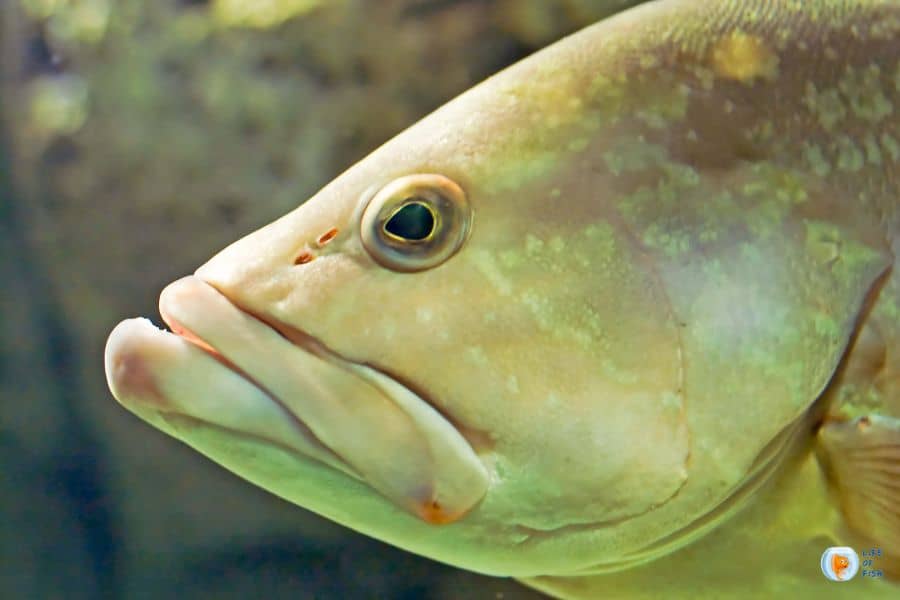
Stress And Illness
When fish outgrow their aquarium, it can be very stressful for them. Not only do they become cramped in the small space but poor water quality conditions caused by overcrowding can lead to stress and illness. This is why it’s important to recognize when your fish are becoming too big for their tank and take action as soon as possible.
The best way to prevent this problem from happening is to invest in a larger tank before bringing home any new fish. That being said, if you have already found yourself in this situation there are some steps you should take:
- Monitor Your Fish Regularly: Keep an eye on your fish for signs of distress such as sluggish behavior or loss of appetite. A decrease in these indicators could mean that the high levels of nitrates have started taking their toll on your aquatic pet’s health.
- Perform Frequent Water Changes: Removing the excess waste through regular partial water changes can help keep nitrate levels down while also providing oxygen-rich fresh water which will help reduce stress-related illnesses.
- Upgrade To A Larger Tank: When all else fails, the most effective solution may just be getting a bigger tank so your fishies can reclaim more swimming room and enjoy better water quality overall. If you’re able to upgrade right away then make sure to perform a full cycle test beforehand with gravel vacuuming, filter maintenance, and chemical balance checks.
Taking these precautions will ensure that both you and your fish remain happy – because after all, healthy pets equal happy owners!
Conclusion
It can be heartbreaking when a beloved pet fish outgrows its home. But with some research and planning, we can ensure that our finned friends have the space they need to thrive. Firstly, it’s important to understand how big any given species of fish are likely to get so that you know what size tank you should opt for from the start. If your current tank isn’t appropriate, an upgrade may well be in order – but if this isn’t possible there are other options available such as rehoming or using smaller tanks until bigger ones become available.
Ultimately, it’s essential that fish of all sizes enjoy their own personal space in order to lead healthy lives. And while it’s hard to part with pets who’ve been around for a long time, ensuring they’re not overcrowded will help them live longer and happier lives overall. Even if you don’t have enough room for a larger tank right away, doing some research into the best alternative solutions is always worth taking the time over – after all, no one wants their poor little buddy feeling cramped!
Read Next : Signs Of Too Many Fish In Tank: The Ultimate Guide
